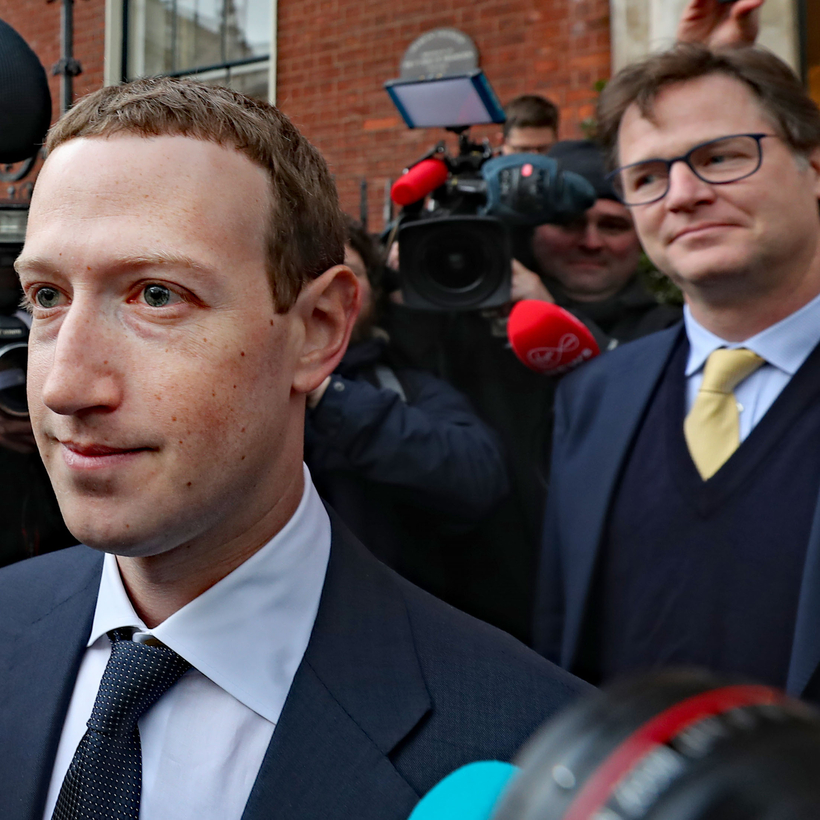If all political careers end in failure, then at first glance Nick Clegg’s is the exception.
Six years on from humiliation at home, David Cameron’s former deputy prime minister looks to have completed a midlife re-invention. The man who once had to be smuggled into his office via an underground tunnel—while, outside, students burned effigies of him in protest of his breaking a campaign pledge not to raise university-tuition fees—can now cycle unmolested to work in Silicon Valley from a $9.7 million house with requisite pool, hot tub, and outdoor fireplace.

